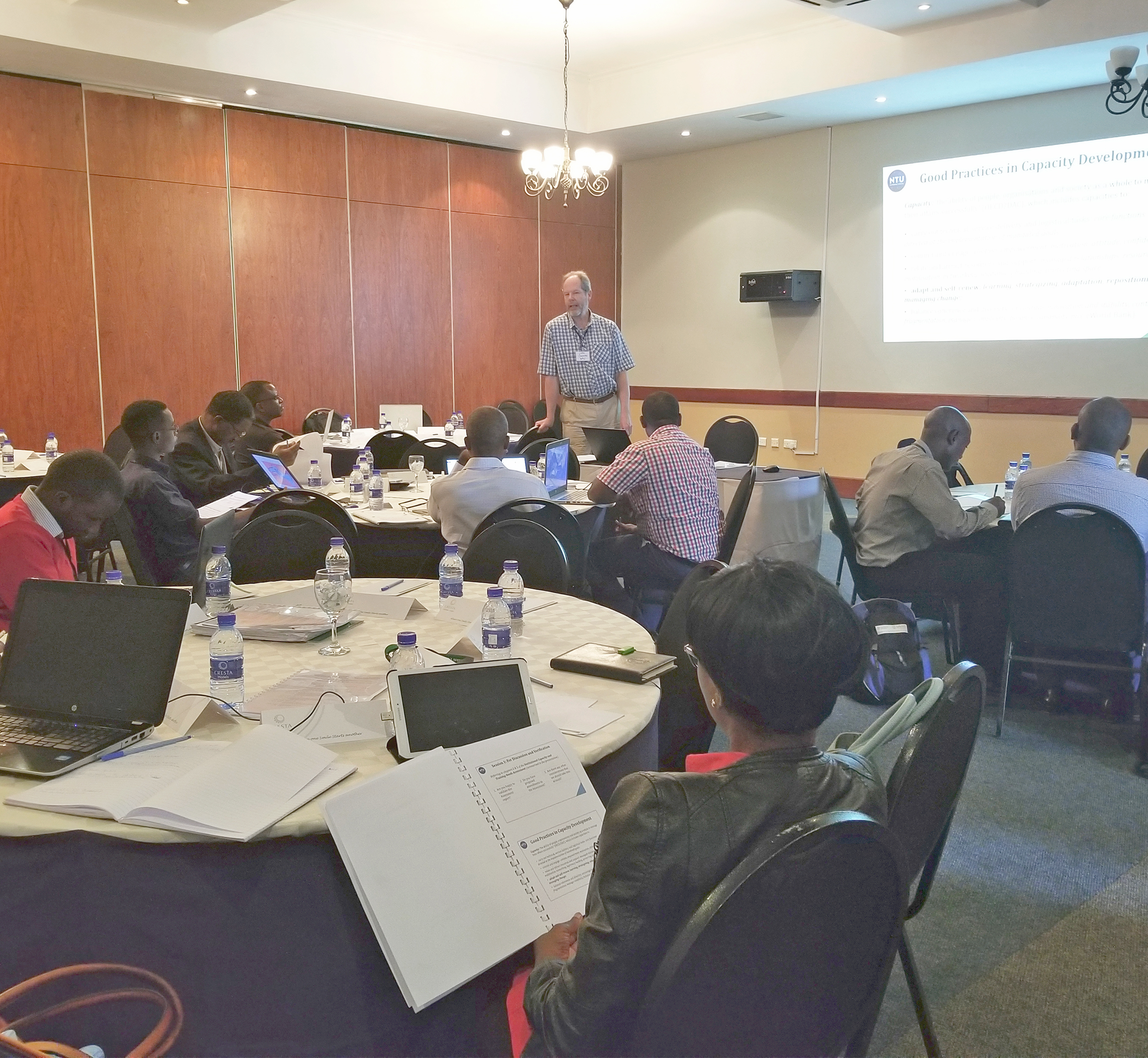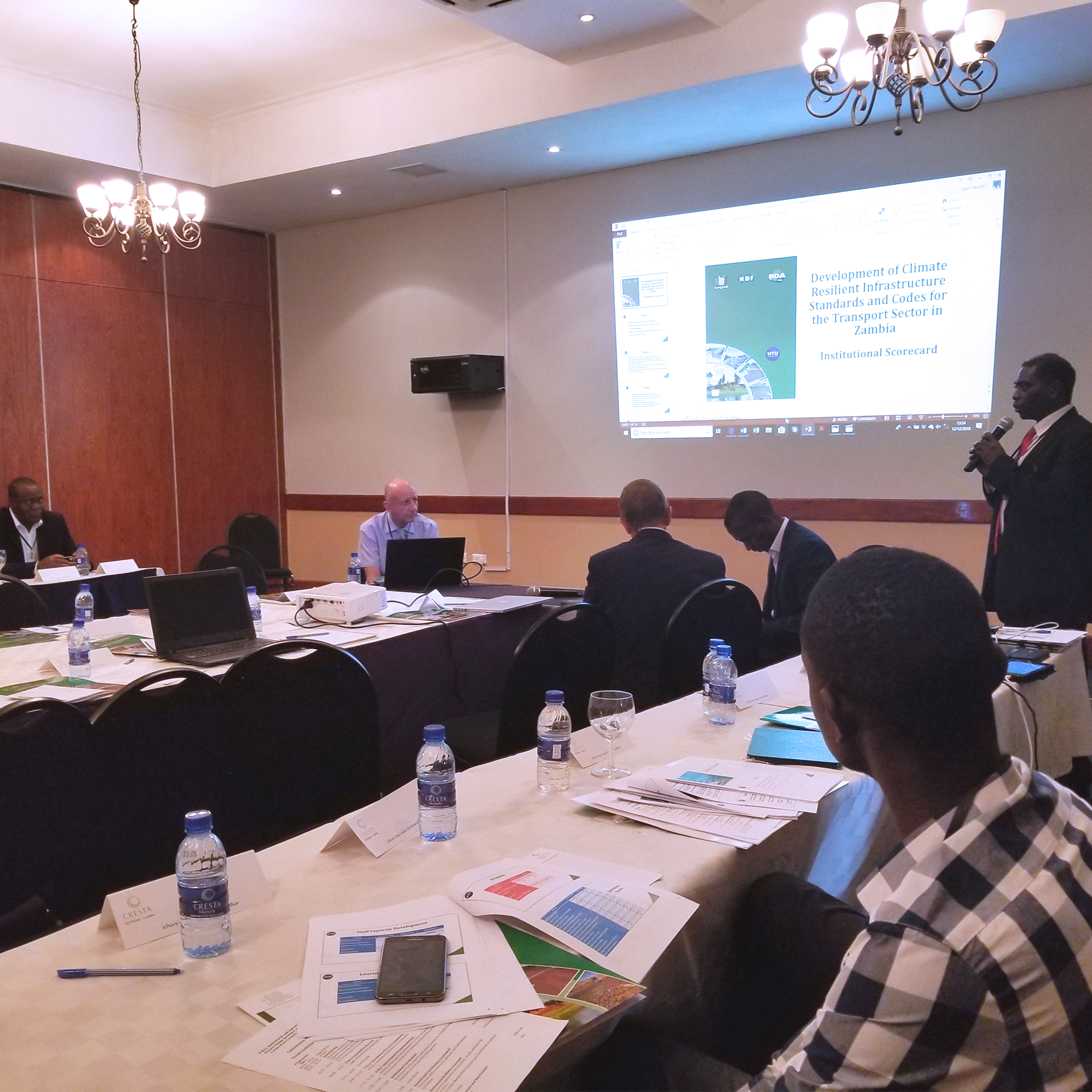


Zambia and the effects of climate change
Like so many of its neighboring countries, Zambia has experienced extreme hazards due to the changing climate. The effects of climate change are particularly visible on the country’s roads where extreme rainfall has caused severe damage, and Zambia is now in need of a more climate resilient and sustainable infrastructure. As one of the fastest growing economies in Africa, the country's future development is depended on a well-functioning road infrastructure. Consequently, the Government has planned several initiatives to combat climate -related hazards, and ensure that vulnerable industries, such as agriculture, can continue to flourish even if climate change impacts worsen.
Policy and Institutional and Capacity Building Workshop
NTU’s team is working with the Zambian transport sector’s policy makers, decision-makers, transport sector engineers and civil servants to further develop the capacity of the transport sector. Much of this will be done through training of all relevant stakeholders, and last week the first Policy and Institutional and Capacity Building workshop was held.
A crucial step towards improving the resilience of the country’s roads is to ensure a climate adaption approach is imbedded into road sector policies. Something which Zambia is now devoting more focus towards. Considering this, the first day of the workshop was dedicated to policy discussion and throughout the day, participants eagerly discussed the policy consultation process, policy improvements and/or recommendations and institutional scorecard. Day two focused on Institutional and Capacity Building with seminars on institutional capacity and training assessments, training and capacity development plan and the training of trainers.
Improved roads will benefit half of the population
The impact of this Nordic Development Fund sponsored project will be to assess the climate risk of some 5,500 km of the road network (i.e. about 14% the Zambian Core Road Network) which is considered most vulnerable to climate variability and change. The project will similarly assess the vulnerability of approximately half of Zambia’s population (as many as 8 million people) that the initial Climate Vulnerability Assessment indicates may be at direct or indirect risk from climate impacts on the national road network.
